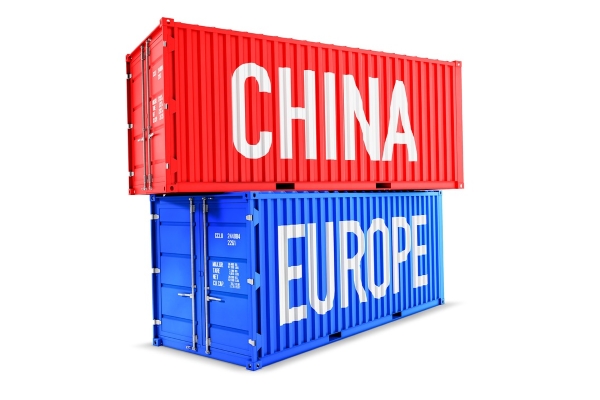
China has been singled out as the country with the most “persistent and long-standing problems” regarding intellectual property protection and enforcement, according to a report from the European Commission.
The report on the protection and enforcement of intellectual property rights in countries outside the European Union in 2016 updates the EC’s list of “priority countries” and directs efforts and resources on the specific areas of concern with the aim of protecting European companies and consumers from counterfeiting and piracy worldwide.
According to the report, which puts special emphasis on online counterfeiting and piracy and the role free trade zones play in illicit trade, a number of non-EU countries were identified where the level of IPR protection and enforcement has deteriorated over the past two years or where it has remained unacceptably weak.
China came out as the top priority country “because longstanding problems in the area of IPR protection and enforcement persist”, the report said. This is based on EU and OECD evidence that shows China is the origin of most counterfeit and pirated goods arriving in the EU, with more than 80 per cent of the seizures of fake goods found to originate from China or Hong Kong.
“The measures taken by the Chinese government, in particular the creation in 2012 of a ‘national leading group’ and various special ‘sword campaigns’ against counterfeiting activities, while commendable, do not seem to have kept pace with new technologies and the scale of infringements. Online counterfeiting and piracy have substantially aggravated the scope and dimension of China's enforcement problem,” the report said.
Particular IPR protection and enforcement shortcomings for China included: cumbersome regulatory processes; deficient cooperation between different administrative and police entities; the difficulty to obtain interim injunctions; damages awarded for IPR infringements neither compensates for losses nor deters future infringements; limited protection against the registration of bad-faith applications; issues with the Chinese patent system; and various regulatory practices that appear to discriminate against foreign products and companies, such as the requirement to disclose business information when trying to enter the Chinese market and forced technology transfers.
It also added that there were differences in IPR enforcement between Chinese cities and provinces. While large cities such as Beijing and Shanghai had standards reported as satisfactory, there remained a lack of expertise and corruption in other areas of the country, it said.
The report also establishes a second category of priority countries, which includes Argentina, India, Indonesia, Russia, Turkey and Ukraine, while a third category includes Brazil, Ecuador, Malaysia, Mexico, Philippines, Thailand and the US.
The Commission also identified a separate category of countries, where IP enforcement gives rise to concern and where developments need to be closely monitored. This category of countries includes Israel, Kuwait, Paraguay, South Africa, United Arab Emirates and Uruguay.
“Today’s report highlights just some of the problems that EU companies and consumers face both in Europe and worldwide,” said Cecilia Malmstrom, EU trade commissioner. “Intellectual property theft – such as counterfeiting and piracy – stifles innovation and erodes confidence with our trading partners. This is a particular problem in China, which still accounts for the vast majority of seized counterfeit and pirated goods, although some progress has been made. I hope that this report , along with our upcoming Counterfeiting and Piracy Watch-List, will be an incentive for other countries to act on this issue in their own jurisdictions.”
The report was based on a variety of information and data, and included more than 165 responses received with regards to a questionnaire that sought specific information on IPR protection and enforcement.
According to the survey results, copyright piracy, both online and offline, was seen as a global problem, but it was identified as a particularly serious one in countries such as China, Ukraine, Russia, Thailand, the Philippines and Mexico. In the area of patents, Indonesia, India, Russia and Argentina, were seen to apply unduly restrictive patentability criteria, while in Brazil, the interference of health authorities in the granting of patents in the pharmaceutical sector remains problematic.
More than 50 per cent of respondents noted they were treated differently in some non-EU countries than those countries’ domestic companies. China was particularly highlighted for its forced technology transfer and local working requirement.
Meanwhile, more than 50 per cent of the respondents considered that the infringement of their IPR resulted in risks regarding the health or safety of customers in the country concerned.
The report, which also included sections on the misuse of free-trade zones and the abuse of EU geographic indications, is hoped to provide rights holders with awareness of potential risks to their IP when engaging in business activities in or with certain third countries and allow them to design business strategies and operations to protect their intellectual property.
Image: freeGraphicToday / Pixabay
©
SecuringIndustry.com





